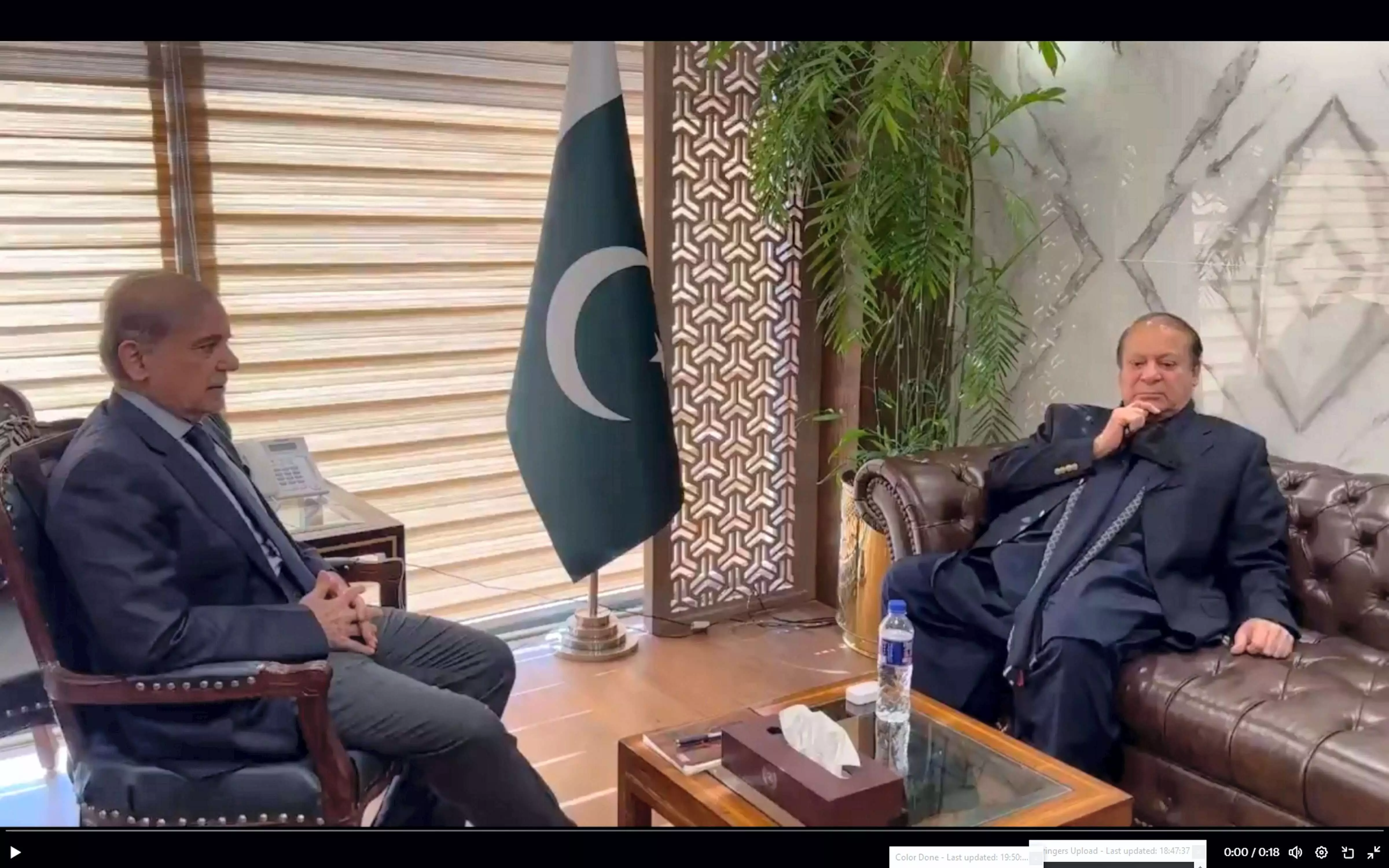Palpable discontent
Although army’s interference in Pakistan’s national politics is set to install the government of its choice, the rise of anti-military sentiment in the country is considerable

It will soon be one month since the general elections (held on February 8) in Pakistan resulted in a fractured mandate and a high degree of unpredictability, making the country’s future uncertain and fraught with genuine concerns. These events occurred amid widespread allegations of rigging and electoral manipulation masterminded by the army, which has gone down in the annals of history for directly interfering in the election process and influencing the results.
Despite these charges of malpractice, the Pakistan Tehreek-e-Insaf (PTI) triumphed as the single largest winner. Strikingly, its leader and charismatic former Prime Minister, Imran Khan, remains incarcerated and was debarred from poll canvassing. This was clearly to enable the Pakistan Muslim League (Nawaz) (PML-N)’s Nawaz Sharif to be brought back at the helm in collaboration with the Pakistan People’s Party (PPP). As this column is waiting to hit the stands, different equations and chemistry are being worked out to install a government of PML(N) and PPP combine. This will surely suit the army, which has developed a pathological hatred for Imran Khan due to his role on May 9, 2022, in irking the army and the party supporters, resulting in large-scale violence targeting several army infrastructures. As a compromise formula, albeit temporary, Nawaz’s brother Shehbaz Sharif is being considered to be the Prime Minister. Ironically, it would seem that the army is settling a personal vendetta against Imran Khan.
Meanwhile, almost all sections of Pakistani society, be it academics, media (both print and electronic), and civil rights groups, have stepped up their acerbic criticism of the government (read army) for its failure to hold the elections transparently, raising serious question marks about the integrity of the army. A recent column in a popular daily, aptly articulated, went to the extent of doubting the performance of the new government. It says the formation of the new coalition government is unlikely to end the country’s political turmoil, but it does create an opening to address multiple challenges. It significantly states that in Pakistan, personality and victimhood-driven politics keep pushing discussions about economic and security threats into the background. In other words, there is a distinct polarisation between the elite and the non-elites.
Amid these critical occurrences, it's pertinent to mention that not long ago, Pakistanis were sharing videos claiming that the construction of the Gwadar port would be a game-changer, making Pakistan the hub of global container traffic larger than Dubai and Hong Kong. Today, Gwadar Port only has three berths while Hong Kong Port has 24, and Dubai’s Jebel Ali Port has 67. There are eight ports in the world larger than Jebel Ali. No one in Pakistan ever pauses to wonder how a port can handle three ships at a time that will somehow overshadow others with much greater capacity. Similarly, the entire nation has, for years, been enthralled by the idea that repatriation of billions of dollars of stolen money parked by corrupt Pakistanis abroad would somehow solve the country’s economic problems.
Crucially, an important feature noticeable in the wake of elections, particularly among the youth, is the prevailing sentiment that the military should refrain from indulging in politicking. This sentiment has likely been a factor since Pakistan began experiencing military intervention in toppling or making civilian governments, starting from Ayub Khan, the self-made Field Marshal, who set the tone and trend of dictatorship by ruling with an iron fist for eleven long years. The trend continued at regular intervals, whether it was Yahya Khan, Zia Ul Haq, or Pervez Musharraf. However, this time, the anti-military sentiment is more pronounced.
Against this backdrop, the general public in Pakistan seems to be restless, curious about the next move of Gen Syed Asim Munir, the all-powerful Army Chief, who tacitly claims to be enjoying the blessings of the US after his visit to DC and even appears ambitious. Whether the army contemplates a takeover in the event of a situation going out of control remains a question.
According to Adil Najam, Professor of International Affairs at Boston University, “this is the biggest institutional crisis that the military has ever faced in Pakistan. It is not just that their strategy failed. It is that the ability of the military to define Pakistan’s politics is now in question.” A serious point has been raised and widely accepted by a large segment of society. This pattern needs to be watched closely lest the situation turns volatile. This is apprehended as Asif Ali Zardari, who is ambitious to place his son Bilawal Bhutto at the helm in due course, and the Sharif brothers, in all likelihood, will fall apart as the hurriedly convened potpourri government with two ideologically apart dispensations may find it difficult to tread on a common path.
The army will try to break Imran Khan, which may not work out, though many of his cadres may switch sides under army pressure. Yet, PTI looks formidable as they know if any party has the largest support of the Pakistani people, it’s the PTI. Judging purely by these developments, the army may find it very challenging to stitch a united Pakistan with warring political factions resorting to street agitations. With a dwindling economy and numerous challenges Pakistan is afflicted with, Gen Asim Munir, with his plate full, may be at a loss to navigate unless he repeats what Ayub Khan, Zia, and Musharraf did in the past. Either way, it is Pakistan and its people who will continue to suffer, both politically and economically.
The writer is a retired IPS officer, Adviser NatStrat, and a former National Security Advisor in Mauritius. Views expressed are personal



